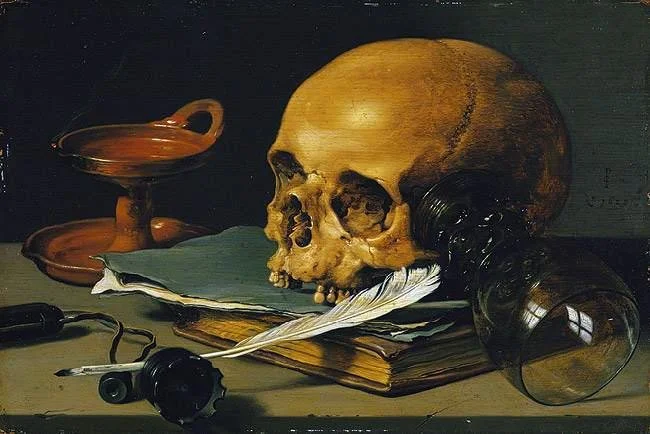
About
Sara Hailstone’s writing is born from navigating the raw and confronting connections that living in rurality projects by scouring domestic landscapes. She is an educator and writer from Madoc, Ontario who orients towards the ferocity and serenity of nature and what we can learn as humans from the face of forest in our own lives. A graduate of Guelph University (B.A.) and Queen's University (M.A. and B.Ed.), she has also finished her Masters in English in Public Texts at Trent University. She has been published in literary journals and magazines like The Writer’s Chronicle, Great Lakes Review, White Wall Review, Wild Roof Journal and the Spadina Review. Sara is currently a book reviewer for River Street Writing, Cloud Lake Literary Magazine and Coffee and Thorn. She is also Managing Editor for Great Lakes Review.
I live with hamartia,
hamartia and i.
This conversation with Hamartia lays within a personal blog that used to be public and I posted to from 2011-2016. Now, my blog is private and moreso a house for my work that I pull from, however, I wanted to share the vibrations of the tone of my writing here. Enjoy.
Hamartia, the tragic flaw, from Greek hamartanein, "to err," resonates with each one of us because we carry it like skin, creaming and polishing it, we weave our soft-scarred fingers together while tonguing the knowledge of it in our lives.
Defined as "an inherent defect or shortcoming in the hero of a tragedy, who is in other respects a superior being favoured by fortune," the term was introduced by Aristotle in the Poetics. Aristotle provided a portrait of the tragic hero as an individual bred from prominence and virtue "whose misfortune is not brought about by villainy but by some error of judgment." This mortal imperfection later came to be interpreted as a "moral flaw," like jealousy, hate, fear, greed, and anger. The hero suffers, they send out vibrations of this suffering in which case society receives these frequencies, by then, as disproportionate to the actual manifestation of the tragic flaw. The tragic hero is, therefore, never passive but almost obsessive in their pursuit to resolve their "tragic difficulty," to rebalance the disproportion, that the tragic hero is thus deemed "guilty of hubris" by others.
Hubris, an external determination by others that the tragic hero possesses excessive pride, perhaps they are blasphemous, they exude a god-dess-like personae that is cut down and severed by fear of Power. Society at large is fearful of those souls who overstep their human limitations, those who offset the balance of nature and anger ethereal and physical matrices, perhaps they suffer from nemesis in their pursuit of 'healing' the tragic flaw, perhaps they learn and survive, ultimately they thrive. Perhaps, there really is no such thing as hamartia at all and it is simply the mechanism of fear to keep humanity in control.
I live with hamartia,
hamartia and i.
Hamartia and i is personal and removed. In whatever fabric you are able to hold on to and pull, don't let go. A counter-narrative woven with beautifully uncomfortable yet brutally-halting and mesmerizing fragments of humanity: this negotiation with hamartia ignites me, this continuous encounter, stripping and re-shaping propels me. I am set free.
Hamartia and i will intersect and echo with your own strengths and flaws, right now. The immense light in the narrows never fades, unless you let it, and let me assure you that the narratives in hamartia and i push through and strive for authenticity. Hamartia and i writes through tragedy to embrace love without fear, imperfectly. My work has always fixed towards the point of writing through conflict and pain.
I encounter and contemplate dis-Empowered narratives. The assumption might be personal or as far-removed as perceived inaccurate historical interpretations, but,
I identify parameters of the dis-Empowered narrative, strive for context, and then I re-write narrative with an hamartian perspective.
